New Gaia-X Service Center for Vorarlberg
The Digital Factory Vorarlberg will become the regional service center of the Gaia-X Hub Austria for the production-intensive Vorarlberg economy.
On April 18, 2024, the Gaia-X Hub Austria presented an implemented test infrastructure for the rule-defined and secured exchange of data for the first time, involving data space experts from the AIT Austrian Institute of Technology and the Digital Factory Vorarlberg. In a live demo between Vienna and Dornbirn, the technical implementation of a data space, based on the Gaia-X Trust Framework, was showcased through a robotics application. Over 30 representatives from the production-intensive Vorarlberg economy were informed about the enormous potential of new data-driven business models, which can ensure the highest data sovereignty.

(c) Digital Factory Vorarlberg/Karl-Heinz Weidmann Helmut Leopold (AIT), Julia Schmelz (AIT), Veronika Siska (AIT), Ralph Hoch (DFV), Mario Drobics (AIT), Robert Merz (DFV)
New Service Center for the Vorarlberg Industry
Sensitive data transfer and the associated loss of control over one’s data often hinder the use of information across company boundaries. In the future, data spaces will allow data to remain with the owners or creators, who will retain full control over access rights, negotiate monetary compensation for data use, and analyze data in encrypted form. To support Vorarlberg companies in this area, a service center of the Gaia-X Hub Austria is being established at the Digital Factory Vorarlberg, which will assist the Vorarlberg economy in using and exchanging data to enhance their competitiveness. In addition to its own experts, the service center can draw on experiences gained in recent years in the design and implementation of data spaces across various domains of the Gaia-X Hub Austria. Furthermore, the new Vorarlberg service center has access to the extensive digital expertise of the AIT Center for Digital Safety & Security, as well as the entire knowledge pool of the European Gaia-X umbrella organization AISBL and the European Data Space Support Center (DSSC).
Manufacturing Industry Facing New Challenges
While the past few decades have focused on the digitalization of production, there is currently increasing pressure to digitalize products and companies. On one hand, companies are increasingly required to provide information digitally, starting with business process transactions to mandatory reports on sustainability aspects (ESG). The planned Supply Chain Law also increases pressure on companies to have digital information available about their businesses and products, including supplier data.
On the other hand, traditional products are also becoming more digital. Digital Product Passports or Digital Twins are already a reality in many areas. For example, digital product passports must be provided by 2027 for certain product groups (such as batteries) to facilitate the recycling of valuable raw materials. Moreover, products themselves are becoming smarter and produce data that is of interest to both users and producers. For instance, data on the charging and usage behavior of batteries can be used to predict remaining usage time and contribute to product design improvement.
To enable such applications, companies need not only data from their own production but also from their suppliers, while they must also share data with third parties. Data spaces provide the organizational and technical framework to conduct this data exchange trustfully and while maintaining corporate sovereignty.
Data Markets, the Future Foundation for Economic Growth and Innovation
The internet, as we know it today, has evolved step-by-step through various innovation cycles. Initially, the focus was on building and upgrading infrastructure, continually converting legacy networks for voice traffic into IP-capable broadband for transmitting large data volumes. Following the advent of the World Wide Web, which today reflects the world’s knowledge, and services for fast, highly available personal communication like email, which still holds its place in business today, the next generation of the internet brought global networking of all people under the term “Social Media” and, on the other hand, rapid advances in machine communication, leading to developments like “Industry 4.0”.
In terms of data storage, we have recently experienced a massive shift to various cloud services, where today’s vast amounts of data are stored and made available for targeted processing. Companies currently face the challenge of maintaining control over their data, as it represents significant business value, while increasingly needing to share more data to, for example, provide information along the supply chain. This most recent evolutionary stage of economic digitalization currently leads to the development of so-called data spaces, which provide an organizational and technical framework for data exchange. Data spaces enable flexible, trustworthy data exchange and thus open up entirely new business models and opportunities to adapt to changing customer requirements while fully maintaining sovereignty over their data. Data spaces, metaphorically speaking, offer safe and flexible on-demand data use “out of the socket”.
Gaia-X as a European Reference Framework for Data Spaces
With the vision of data spaces as decentralized open and federated cloud infrastructure based on European values, defined rules aim to create the commercial foundation for a trustworthy data exchange. Legal frameworks in the form of agreements, contracts, and regulations enhance user trust in this new form of data economy. In flagship projects, technical standards for software based on open source, the design of interfaces to ensure interoperability (APIs), and various labels to demonstrate compliance with Gaia-X rules (protocols) jointly ensure the required data security and quality in cross-domain data exchange, in line with all relevant European Union legislative acts like the GDPR (General Data Protection Regulation), the Data Governance Act, or the Data Service and Data Market Act.
Data Sovereignty for Data Owners
Typically, various goods are traded on markets. Potential buyers look for suppliers who offer the products they need under defined conditions, without the traders and buyers needing to know each other. Transferred to the digital world of data trading, this requires platforms or data markets where data is offered and data owners and data interested parties can conduct intended transactions.
Together, these data markets form ecosystems subject to specific conditions and rules. First and foremost, a data catalog is needed where data owners and providers describe their data (their offer).


